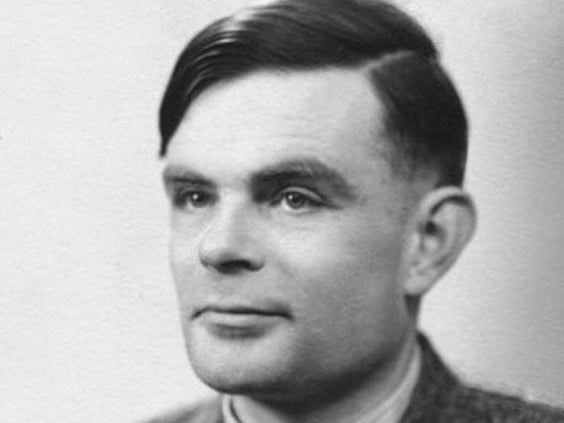Turing Bill filibustered by Tory minister amid row over how to pardon people convicted under scrapped anti-gay laws
The government is putting forward its own version of the bill

Your support helps us to tell the story
From reproductive rights to climate change to Big Tech, The Independent is on the ground when the story is developing. Whether it's investigating the financials of Elon Musk's pro-Trump PAC or producing our latest documentary, 'The A Word', which shines a light on the American women fighting for reproductive rights, we know how important it is to parse out the facts from the messaging.
At such a critical moment in US history, we need reporters on the ground. Your donation allows us to keep sending journalists to speak to both sides of the story.
The Independent is trusted by Americans across the entire political spectrum. And unlike many other quality news outlets, we choose not to lock Americans out of our reporting and analysis with paywalls. We believe quality journalism should be available to everyone, paid for by those who can afford it.
Your support makes all the difference.The so-called Turing Bill has been filibustered by a Conservative Minister in the House of Commons, amid a row over how the legislation is delivered.
A Government version of the law, put forward by Justice Minister Sam Gyimah, is still expected to be passed when it is put before Parliament.
However, Mr Gyimah spoke for around 25 minutes before a vote was due to take place on a private member’s bill proposed by SNP MP John Nicolson.
It sought to automatically pardon living gay people convicted under now abolished sexual offences relating to same-sex relationships. Famous World War Two code breaker Alan Turing was pardoned of gross indecency in in 2013.
The Government version of the legislation will only automatically pardon dead people in England and Wales, while living people can go through a ‘disregard’ process by applying to the Home Office.
Approval means that any previous offences relating to now scrapped laws do not show up on criminal records checks.
Labour and Liberal Democrat MPs have now called on the Scottish Government to explore legal options to quash the convictions and cautions issued to people for now-abolished gay sexual offences and issue pardons. Scottish Labour leader Kezia Dugdale said the country “trailed behind” England and Wales.
In Westminster, the Government opposed Mr Nicolson’s bill on the grounds that it “could lead, in some cases, to people claiming to be cleared of offences that are still crimes – including sex with a minor and non-consensual sexual activity.”
But supporters of Mr Nicolson’s bill pointed out conditions in the legislation meant that to be eligible for a pardon, the ‘offence’ had to have been consensual and would not be an offence under modern British law.
MPs cried “shame” as Mr Gyimah continued to speak until 2.30pm, which was the deadline for a vote on the proposals.
While no one opposed the bill and only 57 MPs supported it, Mr Nicolson claimed on Twitter: “We heard some moving speeches today from Tory MPs. Most supported my bill. Hence the Government need to stop them voting.”
The Government intends to bring forward its proposals in the form of an amendment to the Policing and Crime Bill.
Mr Gyimah said: "As well as honouring the dead (Mr Nicolson) seeks a pardon for the living. We have developed a way to do this without giving any perception that the pardon covers perpetrators of sex with a minor or non-consensual sex.
"What I would like to do today is to make a full and open offer to the honourable member to work with officials in the Ministry of Justice and the Home Office and Stonewall to give real effect to this pardon for the dead and the living as fairly and quickly as possible."
Mr Nicolson said he had accepted an offer of help from the Government in June and that there had been "plenty of time to chat about this".
He accused the Government of attempting to "hijack" his plans, adding: "The amendment accepted by the Government would grant an automatic pardon to the deceased and of course that's great, but my Bill provides the same provision.
"But I have to ask the House, should we not prioritise the living over the dead?"
Debate on the Bill is set to resume on December 16 but it is unlikely to progress without the support of the Government.
Join our commenting forum
Join thought-provoking conversations, follow other Independent readers and see their replies
Comments